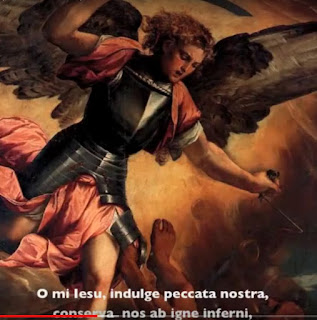September 21, 2018, Paris, Texas
Father Denzil, Pastor of the Our Lady of Victory Catholic Parish, sent a text message saying that Bishop Strickland would grant a partial indulgence to anyone who visits the Cathedral in Tyler, Texas on October 5th, 2018. The Bishop requested the veneration (regards with profound respect) of the relics of St. Padre Pio!
At once, I recalled an article from the New York Times by Paul Vitello entitled, “For Catholics, a Door to Absolution Is Reopened.” He started his story, “the announcement in church bulletins and on Web sites has been greeted with enthusiasm by some … but it has gone over the heads of a vast generation of Roman Catholics who have no idea what it means.”
Vitello went on to state that like the Latin Mass and meatless Fridays, the indulgence was one of the traditions decoupled from mainstream Catholic practice in the 1960s by the Second Vatican Council.
He used a light touch when he rolled back the part about decoupling indulgences. The Second Vatican Council did not dispute the importance of indulgences. Like other practices the reformers simplified and codified them.
While Catholics under 60 may have never sought an indulgence, let alone heard of them, they play a significant part in the remediation of sin. The Catechism of the Catholic Church (CCC) addresses indulgences as follows:
“The doctrine and practice of indulgences in the Church are closely (intricately) linked to the effects of the sacrament of Penance. An indulgence is a remission before God of the temporal punishment due to sins whose guilt has already been forgiven… To understand this doctrine and practice of the Church, it is necessary to understand that sin has a double consequence.”
While playing baseball, Chris makes a great hit but breaks his neighbor’s window. He goes to the neighbor’s house and asks Mr. Fine for forgiveness. Mr. Fine replies, “Sure. I accept your apology. No hard feelings.” Chris thanks his neighbor and begins to walk away. Mr. Fine stops him and says, “Chris, I do forgive you, but you need to pay for the broken window.” Chris looks complete dejected and says, “I don’t have any money.” Mr. Fine says kindly, “Well, if you don’t have the money, you can do yardwork to pay me back.”
The double consequence of sin includes Penance in the form of Confession and Purgation for the forgiveness of temporal punishment of sin.
The Catechism states:
The forgiveness of sin and restoration of communion with God entail the remission of the eternal punishment of sin, but temporal punishment of sin remains. While patiently bearing sufferings and trials of all kinds and, when the day comes, serenely facing death, the Christian must strive to accept this temporal punishment of sin as a grace. He should strive by works of mercy and charity, as well as by prayer and the various practices of penance, to put off completely the “old man” and to put on the “new man.” (CCC 1473).
Indulgences negate some or all the temporal punishment of sin we have accumulated. Many of our Catholic devotions include partial indulgences such as praying the Rosary together before or after Mass.
(I suggest that parishioners read about indulgences in CCC 1471 and download or obtain the publication, Enchiridion of Indulgences.)
To obtain an indulgence, Catechism and Canon Law states:
To gain indulgences, whether plenary or partial, it is necessary that the faithful be in the state of grace at least at the time the indulgenced work is completed.
Have the interior disposition of complete detachment from sin, even venial sin;
Have sacramentally confessed their sins;
Receive the Holy Eucharist (it is certainly better to receive it while participating in Holy Mass, but for the indulgence only Holy Communion is required);
Pray for the intentions of the Supreme Pontiff.
It is appropriate, but not necessary, that the sacramental Confession and especially Holy Communion and the prayer for the Pope’s intentions take place on the same day that the indulgenced work is performed; but it is sufficient that these sacred rites and prayers be carried out within several days (about 20) before or after the indulgenced act.
Prayer for the Pope’s intentions is left to the choice of the faithful, but an “Our Father” and a “Hail Mary” are suggested. One sacramental Confession suffices for several plenary indulgences, but a separate Holy Communion and a separate prayer for the Holy Father’s intentions are required for each plenary indulgence.
For the sake of those legitimately impeded, confessors can commute both the work prescribed and the conditions required (except, obviously, detachment from even venial sin).
Indulgences can always be applied either to oneself or to the souls of the deceased, but they cannot be applied to other persons living on earth.
“Bishop Strickland offered our Diocese a partial indulgence to anyone who visits the Cathedral on October 5th, 2018 and venerates (regards with profound respect) the relics of St. Padre Pio!
October 5th falls on the First Friday of the month. The Cathedral of the Immaculate Conception holds Mass at 6pm.


